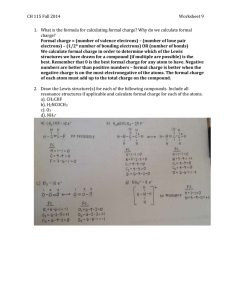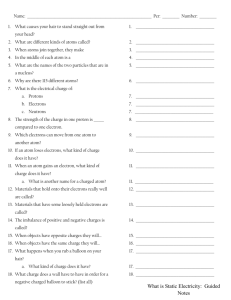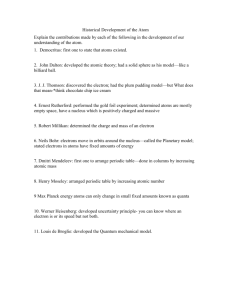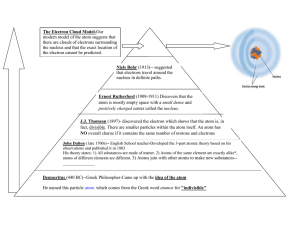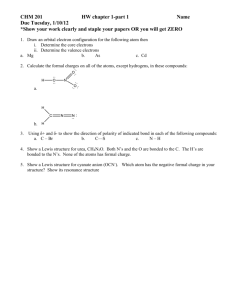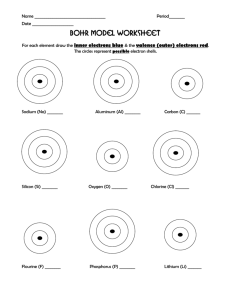Chapter 20 - Electricity
advertisement
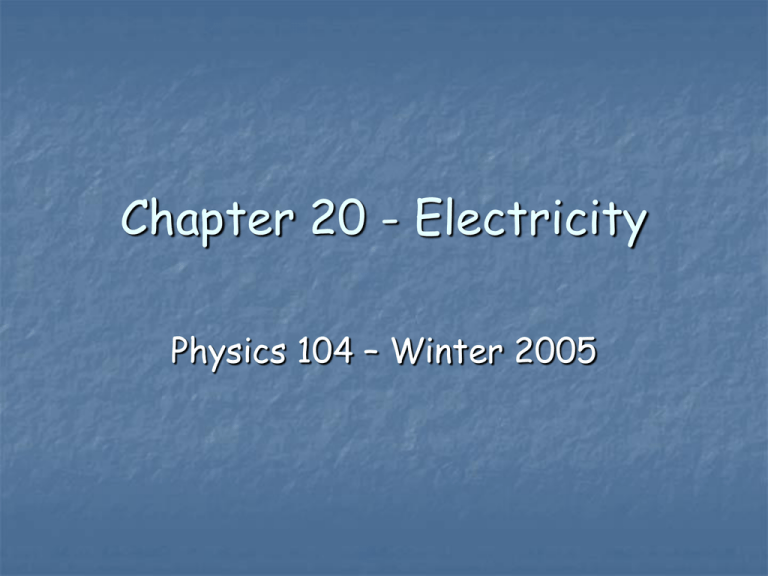
Chapter 20 - Electricity Physics 104 – Winter 2005 Electric Charge Electric charge – a fundamental quantity of our universe Charge is QUANTIZED – the smallest charge that one sees in nature is the charge of the electron – 1.602 x 10-19 C Even in our most modern quantum field theories, nobody can calculate this number!!! The charge of the proton is equal in magnitude, but opposite in sign, to that of the electron – THERE ARE TWO TYPES OF CHARGE Insulators and Conductors Most objects are composed of NEUTRALLY CHARGED atoms. In an ordinary atom, the number of electrons = the number of protons. The neutrons are uncharged. In most substances, the nuclei are rigidly positioned, and the electrons of a particular atoms orbit that atom’s nucleus. They do not move around from atom to atom. Because the electric charges do not move around easily, we say that they do not CONDUCT electricity. These are known as INSULATORS In some substances, like metals, and water, the atoms “overlap”, and the electrons in fact become almost free to move around from atom to atom. When this happens, we have a CONDUCTOR. In some very special substances, like SILICON, for example, the atoms do not quite overlap, but they nearly do. By just giving the electrons a tiny amount of extra energy, we can turn the substance from an insulator into a conductor. These substances are known as SEMICONDUCTORS. Massive Charged Objects Even in insulators, it is possible to “transfer” charge from one object to another. We can take some electrons away from one object, and put them onto another object We usually accomplish this by “rubbing” the object – e.g. balloon on your hair This accumulated extra charge just sits there on the object – since it is stationary, we call it STATIC ELECTRICITY For every electron we put onto one object, we take an electron away from another object – CHARGE IS CONSERVED Electric Forces Like charges repel … opposites attract … Opposites don't attract happiness Leigh Dayton, Science writer 14feb05 WHEN it comes to love, forget the notion that opposites attract. University of Iowa psychologists have studied 291 newly married couples and discovered the opposite to be true. People select romantic partners who are like them in interests, values and background, say the authors of the study, Eva Klohnen and graduate student Shanhong Luo. Hollywood’s Viewpoint Hollywood’s Viewpoint … How to tell if you are kissing correctly … Coulomb’s Law q1q2 F k 2 r 9 2 2 k 8.99 x10 Nm / C Notes: We ALWAYS put in the charges as POSITIVE, even if they are negative!!!! Then, we figure out the DIRECTION of the force from the (likes repel/opposites attract) rule. Hey, it goes like 1/r2 !!!!!!!!!!! Just like gravity !!!!!!!!! Q1 Q2 Initially, Q1 = Q2 –> Equal in Magnitude and Sign …. Then, we reduce Q1 to HALF of it’s original value …. What happens to the ANGLE ??? Newton’s 3rd Law – Equal and Opposite Forces – Angle will be smaller for BOTH Electric Force vs. Gravity Which is inherently a stronger force, the electric force, or gravity? Let’s answer that question by considering a hydrogen atom … Electric Force vs. Gravity Electric Force vs. Gravity Electric Force vs. Gravity Electric Force vs. Gravity Electric Force vs. Gravity
